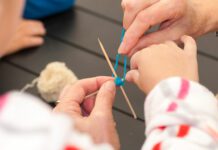REMEMBER WHEN…
My son made an interesting observation the other day. He told me how he and another teacher were joking with their students about how “back in their day” they didn’t have cell phones, so they had to memorize girls’ phone numbers!
Today we don’t have to memorize numbers; we have phones. And we don’t have to memorize dates; we have Google and Wikipedia. And we don’t have to write down or remember recipes; we can bookmark them.
Is this a bad thing? No. And yes.
On the one hand, it makes our modern world possible.
On the other, we lose something about ourselves in this process, a topic wonderfully tackled in the book The Shallows: What the Internet Is Doing to Our Brains by Nicholas Carr.
And as Joshua Foer points out, we all have the capacity to remember much more if only we would challenge ourselves to get more from our memory.
His proof? The year after he covered the Memory Championship as a writer, he returned as a competitor…and won!
But his point in his talk and mine here, too, is not that with some memory tricks we can all win some competitions.
The more significant point is that these “memory tricks work because they make us work.”
This especially matters for our children. If we want them to learn, we must make our lessons memorable. We must engage their senses and make abstract facts meaningful, as Brenda did for her daughter.
When we pay attention, become deeply engaged, and experience facts beyond abstraction, we not only remember things better, but we become changed by them.
Let’s expect more of ourselves and challenge our children’s memory capacities in interesting ways. Let’s spend more time exercising our brains and our memories. Let’s create healthy brains that will remain sharper and stronger as we age.
So much of who each one of us is, is directly tied to our memories. So let’s make sure we are exercising that crucial part of all of us.












